Page 370 • (4,558 results in 0.024 seconds)
-
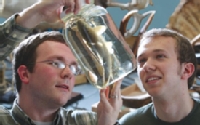
hours between lecture and lab. “This level of interaction in an introductory course gives me time to get to know my students and assess them as individuals much more effectively,” Egge said. “Every student has an opportunity to be successful in the course, but the outcome is ultimately determined by the individual student.” Boaglio has seen a lot of really good students not put in the effort, and it has hurt them. “I know some kids who thought they could coast, because that’s what they did in high
-
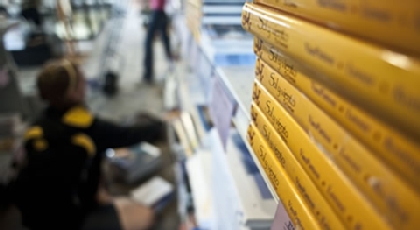
will be stamped for every $5 of textbooks they purchase. Once they receive $100 worth of stamps, they’ll receive a $15 gift card. Read Previous Enhancing the student experience, one scholarship at a time Read Next OTR COMMENTS*Note: All comments are moderated If the comments don't appear for you, you might have ad blocker enabled or are currently browsing in a "private" window. LATEST POSTS A family with a “Bjug” legacy of giving and service September 27, 2024 PLU hosts the 14th Annual Lutheran
-
-circle for Comins. After he earned his MFA at the University of Illinois, he came to PLU as a visiting instructor for a year, filling in for one of his mentors who retired. His goal was always to act, however, so after a year and the mounting of “Angels in America” on campus – “the first time a Lutheran college did so,” he said – he left for the Utah Shakespearean Festival. When performing in “Caesar” there, a producer from OSF saw his performance, liked it, and asked him to come to Ashland. He and
-
many life lessons from retired head coach “Frosty” Westering. “I learned humility from him,” Wolfe said. “That was a huge lesson. At that time in my life, it was very easy for me to get full of myself.” One such lesson occurred during Wolfe’s junior year when he was asked to switch positions. He initially balked at the idea. But Westering and Paul Hoseth, an assistant coach, told Wolfe something he says he will never forget. “They shared with me that it’s not about what I need,” said Wolfe, “but
-
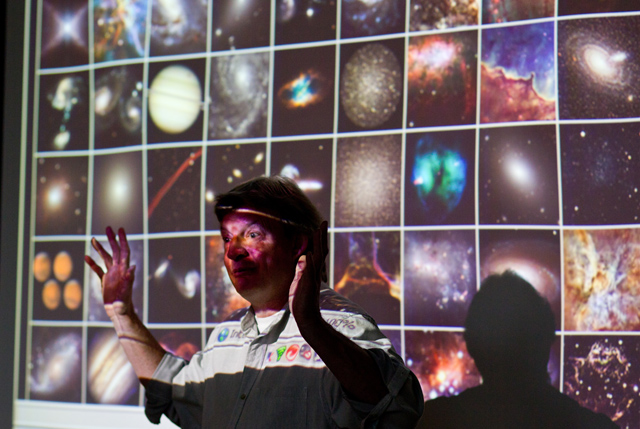
collision wasn’t exactly the same, but once the pieces erupted in Jupiter’s atmosphere, each released enough energy to equal the explosion of all the nuclear warheads on Earth in one place at the same time, Rush said. A study was commissioned to look at what would happen if a similar comet hit Earth. It was concluded that nearly a 1,000 comets came close to Earth, but the next one that would come close enough to cause any damage is thousands of years away. This begged the question, of course, of what
-
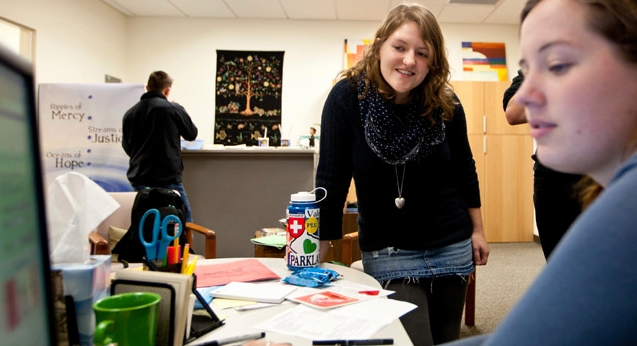
problems in the community today,” she said. “It’s more about working together, than me bringing service to a community.”She remembers the first time she heard President Loren J. Anderson speak during welcome weekend. She felt like he was directly speaking to her. “There is such a sense of vocation here, and you’re not learning just for the sake a getting a job and earning money,” Rudquist said. “You’re learning about doing something enriching with your life. You’re learning how to do something you’re
-
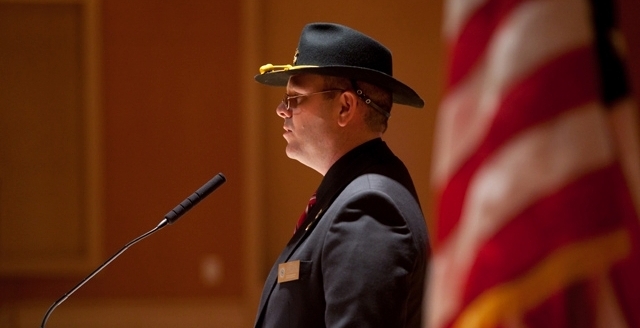
a solider with more than 20 years of service in the Army. He spent time deployed around the world, including tours in both Iraq wars. It was a life of service and sacrifice. It’s a story many veterans share, he said, but each story is also unique. At PLU alone there are more than 130 veterans enrolled and about 200 cadets in the ROTC program, he said. As Farnum transitioned from military service to civilian life, programs like the Yellow Ribbon Program at PLU have helped in working toward a
-

another Minnesota winter. Hegland will be accompanying geosciences professor Claire Todd as the pair spends 40 days, including Christmas, studying deglaciation in the Antarctic. In English, this means studying how ice has melted in Antarctica over the millennia. The temperatures last time Todd travelled to the frozen continent hovered just around zero degrees Fahrenheit. And surprisingly, the elevation is just about 2000 feet above sea level. Hegland worked at much higher elevations when he was on a
-
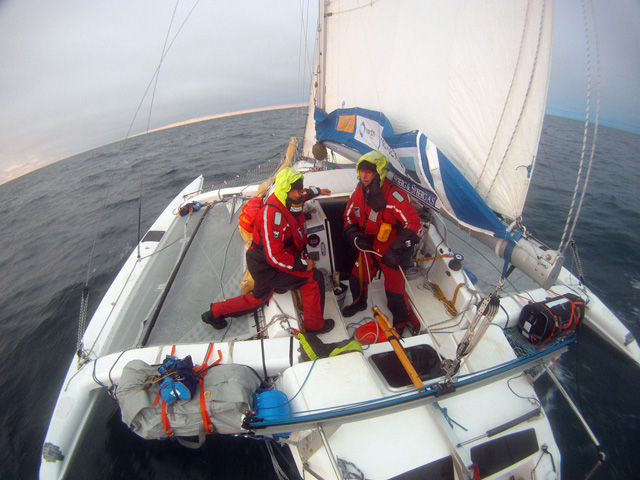
in Canada and across the North Atlantic back to Norway. It was a race against time and in waters with drifting ice, increasing darkness and autumn gales. They have credited their successful voyage on innovation, using state-of-the-art communication technology, good teamwork and a combination of thorough preparation and improvisation. Thorleifsson is an experienced mariner and an organizational developer. His ideas and perspectives are based on his own experiences from business, organizational
-
natural horn lesson with specialist, Andrew Clark. My past experience has shown me that these types of events are valuable for all levels and all kinds of musicians.” The Horn Symposium is an annual event that changes location every year based on who is able and willing to host it. Members of the Northwest Horn Society have been undertaking these symposia for several years now with the goal of educating and promoting excellence in horn playing. The last time it was held at PLU was in the 1990s. The
Do you have any feedback for us? If so, feel free to use our Feedback Form.


